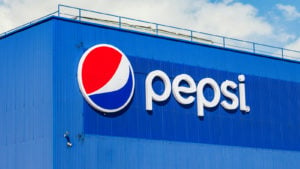Growth stocks and small-cap stocks are adrenaline rush triggers on a regular basis. In good times, these stocks can provide multibagger returns. However, in times of market correction, these stocks cause maximum pain to the portfolio. It’s some low-beta blue-chip stocks that offer a sense of calmness and stability. These boring stocks for retirement provide regular cash flows and decent capital gains.
Inflation has been stubborn, and it does not make sense to hold retirement funds in a savings account. The International Energy Agency chief believes that the world is in a “first truly global energy crisis.” In all probability, we are in an extended period of high inflation. One of the best strategies to maintain the purchasing power of money is to invest in high-yield stocks with robust fundamentals.
Amidst several macroeconomic concerns, the good news is that the valuation of several stocks seems attractive. Exposure to undervalued boring stocks for retirement will ensure healthy dividends. At the same time, these stocks will trend higher from oversold levels. Total returns are likely to be robust.
Let’s talk about three boring stocks for retirement.
| WMT | Walmart | $141.14 |
| LMT | Lockheed Martin | $462.56 |
| PEP | PepsiCo | $179.07 |
Walmart (WMT)

Walmart (NYSE:WMT) stock has outperformed Costco Wholesale (NASDAQ:COST) and Target Corporation (NYSE:TGT) for year-to-date 2022. The 1.6% dividend yield stock looks attractively valued at a forward price-earnings ratio of 23.8. Current valuations have already discounted the margin compression due to inflationary headwinds.
I would hold a retail stock in the retirement portfolio, with consumer spending being a key GDP growth driver. In the coming years, sales growth is likely to remain steady. International expansion is expected to be a catalyst for potential sales acceleration.
Walmart reported comparable sales growth of 6.5% in the U.S. on a year-on-year basis. On a two-year stack basis, e-commerce sales have also increased by 18%. With a solid omnichannel presence, investment in store remodeling, and same-day delivery, the comparable store growth outlook seems optimistic.
From a dividend perspective, Walmart reported an operating cash flow of $9.2 billion for the first half of 2022. Dividends are secure with an annualized cash flow potential of approximately $20 billion. Additional value creation will continue in the form of share repurchases.
Lockheed Martin (LMT)

With strong quarterly results, Lockheed Martin (NYSE:LMT) stock has trended higher by 12% since last month. LMT stock, however, remains attractively valued at a forward price-earnings ratio of 18.0. Additionally, a dividend yield of 2.6% is robust.
For Q2 2022, Lockheed reported net sales of $16.6 billion. For the same period, free cash flow was $2.7 billion compared to $1.6 billion in Q3 2021. An important point to note is that Lockheed closed Q3 2022 with an order backlog of $140 billion. On a quarter-on-quarter basis, the backlog increased by $5 billion.
Considering the global geopolitical scenario, it seems likely that the company’s backlog will continue to swell. This sets the stage for higher cash flows and sustained growth in dividends.
Lockheed has also been investing in next-generation technology to accelerate growth. These technologies include hypersonics, directed energy, and autonomy, among others. By staying ahead of the curve, Lockheed will continue to create value.
PepsiCo (PEP)

PepsiCo (NASDAQ:PEP) stock has traded sideways throughout the year. The 2.6% dividend yield stock is attractive, with the company reporting substantial numbers for Q3 2022.
With PEP stock in an extended period of consolidation, a breakout on the upside seems imminent. For year-to-date 2022, Pepsi has reported net revenue growth of 7.7%. Further, the company has raised its full-year organic revenue growth guidance to 12% (earlier 10%).
It’s worth noting that PepsiCo derived 76% of revenue for the first nine months of 2022 from North America and Europe. With PepsiCo building a strong presence in Latin America, Asia, and Africa, among other emerging economies, there is ample headroom for robust revenue growth.
The company has also been aggressive in terms of packaging and flavor innovation. This is another factor that will continue to boost growth. Therefore, PepsiCo is a core portfolio stock with visibility in earnings and dividend growth.
For 2022, PepsiCo has guided $7.7 billion in shareholder returns. A bulk of this is in the form of dividends. With dividend growth at a CAGR of 7.8% in the last ten years, the outlook for value creation is positive.
On the date of publication, Faisal Humayun did not hold (either directly or indirectly) any positions in the securities mentioned in this article. The opinions expressed in this article are those of the writer, subject to the InvestorPlace.com Publishing Guidelines.
